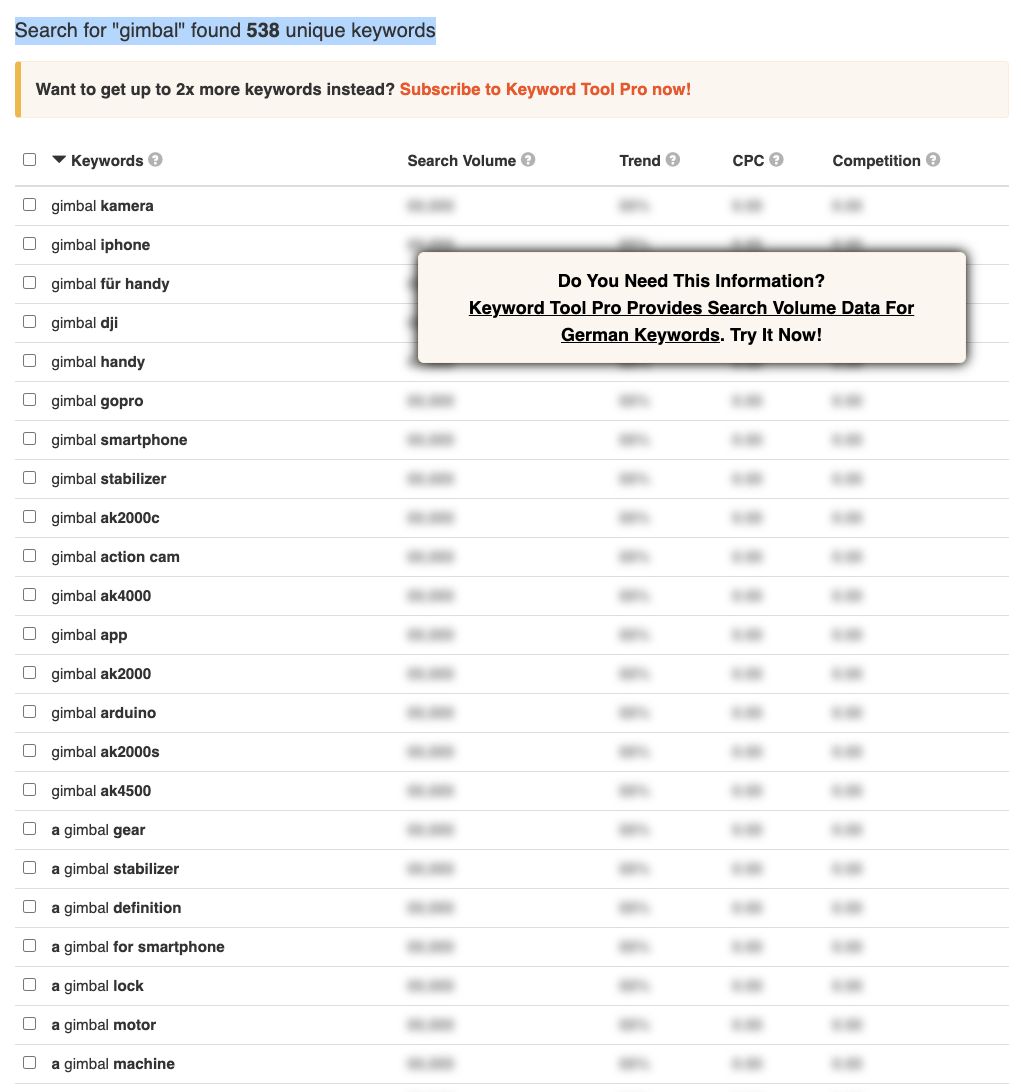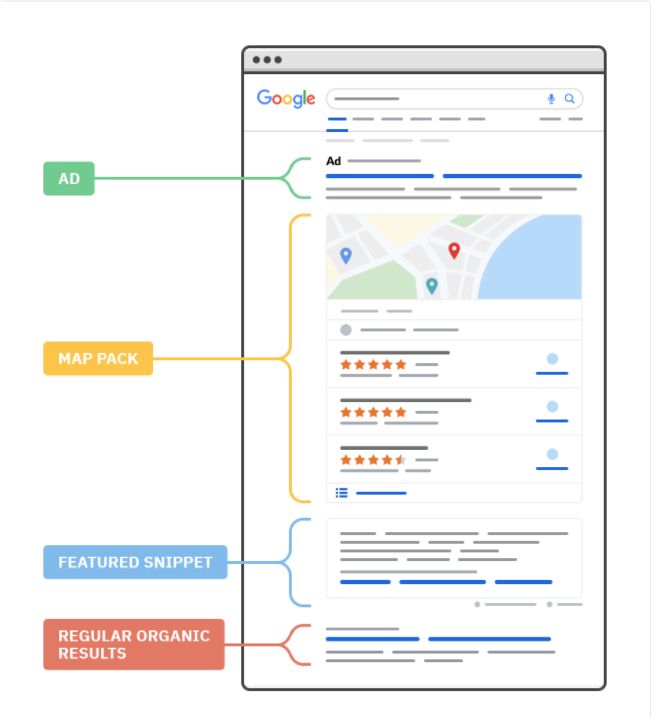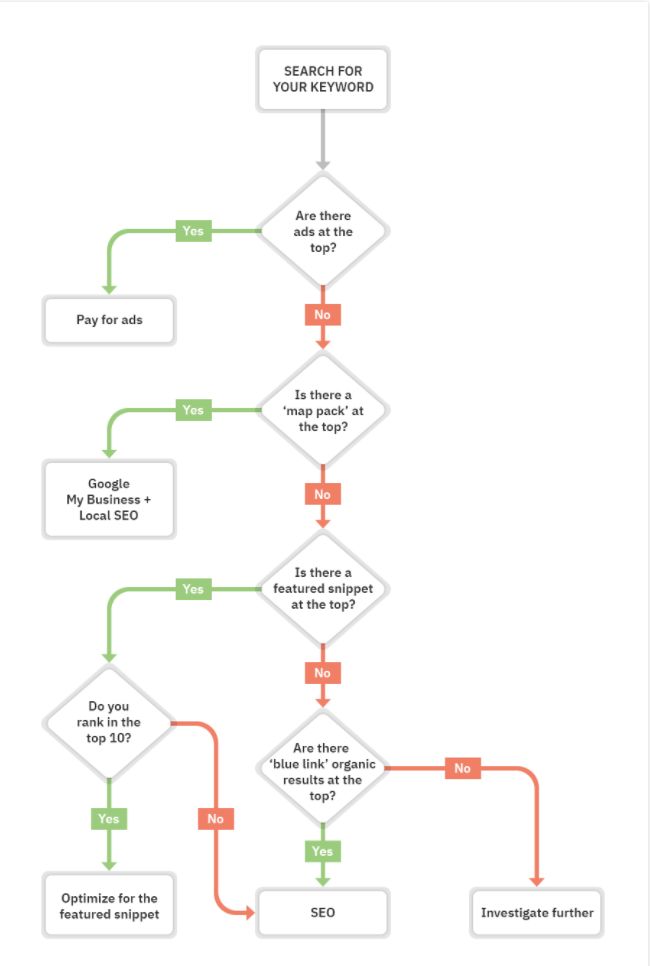Keywords are ideas and topics that define what your content is about. A keyword is a term used in digital marketing to describe a word or a group of words (Phrase) that an internet user types into a search engine or search bar to conduct a search.
In a SEO strategy, keywords are very important and should be the core of any copy written for the web (present in the content, titles and SEO elements).
These are your primary keywords if you boil everything on your page down to basic words and phrases – all the photos, videos, copies, and so on.
Keywords should be developed and carefully selected before launching content online on the web and mobile platforms.
As a website owner and content developer, you want the keywords on your page to be important to what people are looking for so that they can find your content more easily in the results.
Why are keywords important?
Keywords are important because they connect what people are looking for with the content you’re delivering to meet the need.
Your aim in ranking on search engines is to drive organic traffic to your site from search engine result pages, and the keywords you want to target (which means including them in your content) can decide the type of traffic you get.
An owner of a Golf club needs to be careful choosing the right words if he does not want to get results from people who look for a place to dance.
Since you can explain what you sell in a slightly different way than other people ask for it, keywords are as much about your audience as they are about your material. You must understand the needs of your users — the language they use and the type of content they want — to create content that ranks well organically and drives visitors to your site. Talking to your clients, frequenting forums and discussion groups, and doing your own keyword analysis are all options.
Using keywords on your page
 It’s pointless to throw keywords into your page. It’s not just about sending tips to our Google robot friends when it comes to creating compelling content. It’s about having real value for real people.
It’s pointless to throw keywords into your page. It’s not just about sending tips to our Google robot friends when it comes to creating compelling content. It’s about having real value for real people.
To get started, you should follow some simple keyword use guidelines. To convince bots and humans that you have what they’re looking for, use unique keywords on each page of your site in the places where they usually look.
This applies to both the title tag and the body of the text, which brings us to a crucial point: clickbait’s pitfalls. You might assume that providing tantalizingly ambiguous titles for your content can entice more clicks, but by hiding what the page is really about, you are sacrificing some of the power of keywords.
FOCUSING ON SPECIFIC KEYWORDS
A keyword is a search word that many people use to find what they are looking for. But we mostly refer to keyword as Keyword-Phrase, which is a short search sentence.
For example: let’ say that I am looking for a solution for the ‘shaking footage’. If I write the words ‘stabilizer’ or ‘gimbal’, I will get results on many different gimbals.
If I write the phrase “gimbal for Sony a7iii”, I will get different results that will be focused on the specific camera and the gimbal.
If I add to the phrase gimbal for Sony a7iii shops in Luzern I will get additional information to find them near me.
The more specific my research, the more I am adding fine-tuning.
When we are looking at the keywords from the business side, we can analyse which words the users are writing and target them.
The majority of people have a general understanding of the keywords they want to rank for in Google. However, it is difficult to know all that people look for. That is why doing some keyword research to come up with new keyword ideas is beneficial.
Should you focus on the volume of conversion?
The keywords you choose are used to show your ads to people.
Choosing high-quality, relevant keywords for your ad campaign will help you reach only the most interested people, who are more likely to become your customers.
The choice of keywords should not primarily be related to the number of searches but the number of conversions you can make. It is better to have search results for 30 people with a 90% conversion rate than search results for 100 people with a 2% conversion rate.
Google Ads
When someone searches on Google, your ad could be eligible to appear based on the similarity of your keywords to the person’s search terms as well as your keyword match types. Keywords are also used to match your ad to sites in the Google Network that are related to your keywords and ads.
A great keyword list can help improve your ads’ performance and help you avoid higher prices. Poor keywords can ultimately cause you to have higher prices and lower ad position.
You can add match types to your keywords to help control which searches your ad can be matched with.
Choosing the wrong keywords can make the difference between being successful and a finical catastrophe.
How do you get your keywords to show up in Google?
This is my favourite answer: it depends. You can choose the freeway or the monetary way.
Use SEO techniques for your web pages to rank in Google’s organic results (content, backlinks, mobile-friendly, search intent etc.)
With that, Google will rank your site according to the relevant results for every search query.
You’ll get a steady stream of free visits to your website if Google considers your page to be the best result for the right words.
Pay Per Click – you pay Google to have your website appear in search results with those keywords.
For examples, if you sell Pizza in Lucerne city, you could bid on the term “The best Pizza in Lucerne” and appear at the top of Google’s search result when people search for it.
This is known as PPC advertising. Every time someone clicks that ad and lands on your website, Google charges you money. Since paid results are marked as advertisements, people who type the query may tell them apart from organic (non-paid) results.
Using keywords to formulate a content strategy
While you can usually start with a keyword and build content around it, there are times when you have existing content and need to find out how to adapt it to keywords. Build a “content to keyword guide” to accomplish this. This map will help you understand the effect of your current content and recognize any weak links or holes that need to be addressed.
You can use keywords to organize your content and formulate a plan since they describe each page on your web. Starting a spreadsheet (the “content to keyword map”) and identifying your primary keyword for each article is the most basic way to do this.
After that, you can customize your sheet by adding keyword search amount, organic traffic, page authority, and any other metrics that are relevant to your business.
Each page on your web should ideally target a different primary keyword. In general, your homepage will target a wide industry concept, and your category pages, product pages, and articles will drill down into your niche and target more specific needs as you build them.
Check out my other blog posts. Which one is did you like the most? ❤️ ?







Check the links – who knows it might be useful:
https://support.google.com/google-ads/answer/6323?hl=en




You are a true OBM 😉
Recognized! ?
Thanks for sharing the importance of keywords!
Thank you very much, Nicole! I am happy that you liked it.
Everything from your blog is so helpful!! And I love the parrot again haha :))
Thank you so much, Bianca 🙂 – I am glad you have found it useful.